

Simple Education essential guides Advances in Coronary Physiology is the premiere international course in coronary physiology. This is the 5th year this 5* rated course has been run which has quickly become established as the premier global interventional course in state-of-the-art coronary physiology. The course provides all you need to know to understand coronary physiology from learning the background basics of coronary physiology, to understanding the clinical trial data and implementation of coronary physiology in the catheter laboratory.
An online teaching resource, the Simple Education application, will give you access to video content from the days' talks, and a raft of other online educational and learning resources which continue your learning experience and connect you with the interventional community after the course finishes.
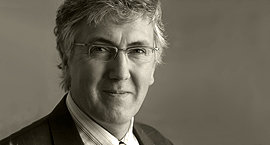 |
Prof Javier EscanedClinico San Carlos,Madrid |
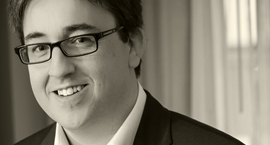 |
Dr Justin DaviesImperial College,London |
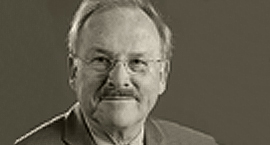 |
Prof Patrick SerruysImperial College,London |
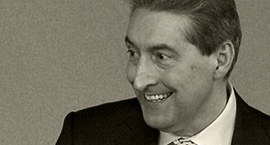 |
Prof Carlo Di MarioRoyal Brompton,London |
Agenda: Monday 6th March 2017
Tuesday 7th March 2017
|

Dr Justin Davies is a clinical academic and consultant interventional cardiologist at the National Heart and Lung Institute, Imperial College London. After training at Imperial College, he won a prestigious BHF research fellowship to study in arterial haemodynamics. Since then he has continued to work on the development of mathematical algorithms to aid understanding of large artery physiology and to develop new tools to assess arterial disease. The holder of several patents, he has published widely in the field of hypertension, coronary and large artery physiology and is the winner of many national and international awards. He has several international collaborations, and is the developer of iFR and the co-principal investigator of the ADVISE studies, the DEFINE-FLAIR, ORBITA and DEFINE-PCI studies. Justin has an interest in renal denervation, and has lead the first-in-man studies to evaluate the safety of this technique to patients with chronic systolic heart failure (REACH studies).
 Prof Javier Escaned is Consultant Interventional Cardiologist / Associate Professor and Head of Section, Cardiology Department, Hospital Clinico San Carlos (Madrid, Spain). He trained as a cardiologist the United Kingdom (Queen Elizabeth University Hospital, Birmingham and Walsgrave Hospital, Coventry) before moving to the Thoraxcenter / Rotterdam (The Netherlands), where he obtained his PhD degree in 1994. Author of more than 200 scientific articles, books and book chapters on different aspects of interventional cardiology, imaging and physiology, his latest contribution is the textbook “Coronary Stenosis. Imaging, Structure and Physiology”, co-edited with Patrick W Serruys. He is currently co-director or EuroPCR. Some of his additional interests are philosophy, education and music.
Prof Javier Escaned is Consultant Interventional Cardiologist / Associate Professor and Head of Section, Cardiology Department, Hospital Clinico San Carlos (Madrid, Spain). He trained as a cardiologist the United Kingdom (Queen Elizabeth University Hospital, Birmingham and Walsgrave Hospital, Coventry) before moving to the Thoraxcenter / Rotterdam (The Netherlands), where he obtained his PhD degree in 1994. Author of more than 200 scientific articles, books and book chapters on different aspects of interventional cardiology, imaging and physiology, his latest contribution is the textbook “Coronary Stenosis. Imaging, Structure and Physiology”, co-edited with Patrick W Serruys. He is currently co-director or EuroPCR. Some of his additional interests are philosophy, education and music.
 Dr Sayan Sen is a Cardiologist and NIHR Clinical Lecturer at Imperial College London. His research interests are dedicated to improving patient care. As such, they include the development and validation of new diagnostic tools, determining how the design of comparative efficacy studies can affect clinical use of competing therapies and the development and application of tools that permit a more patient centered approach to therapy. He studied Medicine at University College London (UCL), achieving a First Class (Honours) Bachelor of Science degree in Medical Sciences & Neuroscience in 2000 and graduated with distinction (Surgery) in his final MBBS Examinations in 2003. He trained as a junior doctor on the Hammersmith and UCL medical rotations prior to being appointed as a Cardiology Specialist Registrar in the North West London region in April 2006 and a NIHR clinical Lecturer in 2013. One of the themes of his research is to determine the need for potent vasodilators when assessing coronary stenosis severity. Working with Dr Justin Davies, Dr Sen’s PhD introduced and developed a new technique of stenosis evaluation (the instantaneous wave-free ratio, iFR). He is the first author of ADVISE and CLARIFY - two investigator lead studies that demonstrate the potential of iFR and challenge current concepts of coronary physiology. Currently, in addition to being the Principal Investigator of several first in man physiological studies, he is also the Medical Director of the FLAIR trial – a global multi-centre randomized study comparing iFR to existing techniques.
Dr Sayan Sen is a Cardiologist and NIHR Clinical Lecturer at Imperial College London. His research interests are dedicated to improving patient care. As such, they include the development and validation of new diagnostic tools, determining how the design of comparative efficacy studies can affect clinical use of competing therapies and the development and application of tools that permit a more patient centered approach to therapy. He studied Medicine at University College London (UCL), achieving a First Class (Honours) Bachelor of Science degree in Medical Sciences & Neuroscience in 2000 and graduated with distinction (Surgery) in his final MBBS Examinations in 2003. He trained as a junior doctor on the Hammersmith and UCL medical rotations prior to being appointed as a Cardiology Specialist Registrar in the North West London region in April 2006 and a NIHR clinical Lecturer in 2013. One of the themes of his research is to determine the need for potent vasodilators when assessing coronary stenosis severity. Working with Dr Justin Davies, Dr Sen’s PhD introduced and developed a new technique of stenosis evaluation (the instantaneous wave-free ratio, iFR). He is the first author of ADVISE and CLARIFY - two investigator lead studies that demonstrate the potential of iFR and challenge current concepts of coronary physiology. Currently, in addition to being the Principal Investigator of several first in man physiological studies, he is also the Medical Director of the FLAIR trial – a global multi-centre randomized study comparing iFR to existing techniques.
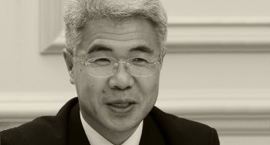
Prof Takashi Akasaka graduated from Wakayama Medical University in 1982 and finished his residency at Kobe City Medical Center General Hospital. He was a clinical fellow at Harefield Hospital in the United Kingdom in 1987. Since 1989, he had done clinical research work in the field of coronary physiology using echocardiography, pressure wire and flow wire extensively at Kobe City Medical Center General Hospital as a director of cardiac catheterization laboratory for 8 years. After he moved to Kawasaki Medical School as an associate professor, he started OCT in addition to coronary physiology in 1999. He became Professor of Wakayama Medical University in 2005 and he has been devoted to the clinical research work using OCT. He has published many papers regarding the pathophysiology of ACS or DES healing process using OCT in collaboration with his colleagues in addition to coronary physiology research. Based on his clinical and research work, he has been an executive board member in various cardiology societies and a course co- director of several coronary live-demonstration courses in the world.
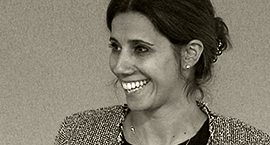
Dr Rasha Al-Lamee is an Interventional Cardiologist at Imperial College Healthcare NHS Trust in London, UK. Dr Al-Lamee’s research interests are complex coronary intervention, coronary physiology and invasive intravascular assessment. She is currently leading the ORBITA trial as part of a PhD programme under the supervision of Dr Justin Davies and Professor Darrel Francis. At Imperial College is actively involved in the development and recruitment for a number of multi-centre clinical trials. Dr Al-Lamee has over 30 peer-reviewed publications and has presented at international Cardiology conferences worldwide throughout her clinical career.
She studied at the University of Oxford and University College London. She went onto complete her training as a junior doctor on the Barts and the London Medical rotation before being appointed as a Specialist Registrar on the North West London Cardiology rotation in 2006.
Dr Al-Lamee has eleven years of Cardiology experience and completed three years of Interventional Fellowship training at Hammersmith Hospital in London. She also spent one year training as an Interventional Fellow under the supervision of Professor Antonio Colombo in Milan. She completed specialist training in Cardiology in 2013.

Dr Christopher Cook is a NIHR Cardiology Academic Clinical Fellow at the International Centre for Circulatory Health and National Heart and Lung Institute at Imperial College London.
He studied Medicine at University College London (UCL) and graduated with Distinction (Clinical Medicine and Clinical Sciences) in his final MBBS Examinations in 2009. He achieved a First Class (Honours) Bachelor of Science degree in Physiology undertaking a period of research at The Hatter Cardiovascular Institute. He was awarded ‘The Dean’s List’ for outstanding performance in the Faculty of Life Sciences. In total he was awarded 17 prizes including the prestigious Gold Medal Medicine (proxime accessit).
His junior General Medical Training was conducted as part of the highly competitive, nationally appointed Academic Foundation Programme, where he undertook a research post in Cardiovascular MRI at The Heart Hospital, UCL. He subsequently undertook clinical cardiology placements at The Royal Brompton and Harefield Hospitals.
In 2013 he was awarded a second prestigious academic fellowship in his current role as a NIHR Cardiology Academic Clinical Fellow at the National Heart and Lung Institute at Imperial College London. In 2014 he was awarded the Imperial Valve and Cardiovascular Course Young Investigator Prize.
His research interests include coronary haemodynamics and the role of the collateral circulation in multi-vessel coronary artery disease.
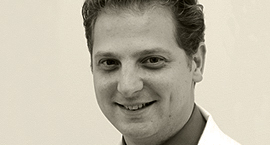
Dr Allen Jeremias, is the Director of Interventional Cardiology Research and Associate Director of the Cardiac Catheterization Laboratory at St. Francis Hospital, Roslyn, NY. He was previously an Associate Professor and the Director of the Cardiac Catheterization Laboratory at Stony Brook University Medical Center. He is also a member of the Cardiovascular Research Foundation, New York, where he currently serves as the Director of the Physiology Core Laboratory.
Dr. Jeremias earned his medical degree at Heinrich-Heine-University School of Medicine in Düsseldorf, Germany, and a Master of Science degree at Harvard Medical School. He completed his Medical training at The Cleveland Clinic Foundation, Stanford University School of Medicine, as well as Beth Israel Deaconess Medical Center, Harvard Medical School.
Dr. Jeremias is board certified in cardiovascular medicine and interventional cardiology and is a Fellow of the American College of Cardiology as well as the Society for Cardiovascular Angiography and Interventions. Dr. Jeremias has numerous publications in the area of interventional cardiology and is the editor of the Medical text Cardiac Intensive Care. He is the author of Your Personal Guide to Angioplasty, a patient-centered book focusing on coronary artery disease and various treatment options. He also is the recipient of numerous awards, including Castle Connolly’s Top Doctors: New York Metro Area, 2009 – 2016.
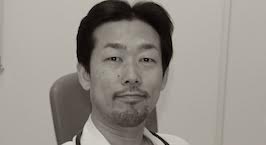
Dr Yuetsu Kikuta is a research fellow at the International Centre for Circulatory Health and National Heart and Lung Institute at Imperial College London. He graduated from Kyoto University, Japan (Prof. T. Kimura) and undertook his cardiology training under Dr H. Tamai who developed the first human biodegradable coronary stent system (Igaki-Tamai stent) to be Chief Cardiologist at Fukuyama Cardiovascular Hospital in Hiroshima. He won and was finalist at national and international scientific session competitions, and has been invited to Japanese, Asian-Pacific, and American scientific sessions (TCT-AP, Imaging Physiology Summit, Complex Cardiovascular Catheter Therapeutics, Endovascular and Coronary Intervention Global Summit, etc). He is an investigator of the first international multicentre online iFR pullback registry (iFR GRADIENT), the DEFINE-FLAIR studies, multicentre national coronary physiology registry studies, and randomised trials of drug-eluting stents.
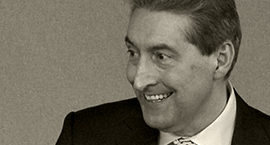
Prof Carlo Di Mario is currently Professor of Cardiology, University of Florence and Director of the Structural Interventional Cardiology Division of the University Hospital Careggi, Florence, Italy. Previous posts included 15 years as Professor of Clinical Cardiology at Imperial College of Sciences, Medicine & Technology, London and Consultant Cardiologist at the Royal Brompton Hospital. He also practiced at the San Raffaele Hospital, Milan, Italy. He trained in Cardiology at the University of Padova, Italy, but he soon moved for a more in-depth interventional trying at the Thoraxcentre of Rotterdam, the Netherlands, where he also complete a PhD in Intracoronary Ultrasound Imaging and Doppler. He maintains an active clinical involvement performing more than 200 PCI per year in the last 15 years in London with the special interest in the treatment of chronic total occlusions, bifurcations, calcified lesions and diffuse disease. He is a regular TAVI operator and certified implanter for the Medtronic Evolute R and Edwards Sapien 3 transcatheter aortic valves. He participated to more than 130 MitraClip implantations in London and in the last few months back in Italy has also started transcatheter mitral treatment with clips, valves and direct annuloplasty. Professor Di Mario pioneered the use of intracoronary Doppler, pressure measurement, ultrasound and optical coherence tomography. These techniques have become the gold standard for physiological assessment of lesion severity and have revolutionised the technique of stent implantation with the use of high pressure dilatation which led to the universal application of this method in interventional cardiology. Professor Di Mario is now applying these intravascular techniques for the guidance of implantation of fully bioabsorbable stents and optimal stent apposition across bifurcations and in complex lesions. He has led or participated in studies and trials to improve the technical success of recanalisation of chronic total occlusion and demonstrate its clinical usefulness. He cooperated with Dr J. Davies to the validation of iFR to assess lesion severity and discriminate the contribution of individual lesions, and with Dr A Lyon to the intracoronary delivery of SERCA-2 genes via adenoviral vectors in the CUPID2 trial. Prof Di Mario was Principal Investigator of the CARESS in AMI trial, a large multicentre trial showing that patients who receive fibrinolytic therapy for ST-elevation myocardial infarction benefit from early angioplasty. This trial and a subsequent meta-analysis have led to a change in the European Society of Cardiology and AHA/ACC Guidelines for treatment of STEMI patients. He is the PI and main recruiter of the Disrupt-CAD study with coronary lithotripsy delivered via dedicated balloons, due to be reported at ACC March 2017.

Dr Sukhjinder Nijjer is a Consultant Cardiologist with a specialist interest in Coronary Intervention and the treatment of coronary artery disease. He works at both Chelsea & Westminster NHS Foundation Trust and Imperial College Healthcare NHS Trust. Dr Nijjer is also an Honorary Clinical Senior Lecturer at Imperial College.
He has clinical research interests in coronary physiology and the treatment of acute coronary syndromes. He has a PhD awarded by Imperial College London in coronary blood flow and the use of Stenting to treat complex stenoses.
Clinically, he is specialises in interventional cardiology and he is skilled in coronary intervention and the application of coronary physiology and intravascular imaging. He has expertise in anti-platelets, optical coherence tomography and CT coronary angiography. He has specific research interests in coronary artery physiology and clinical trial design, and is working at the forefront of innovation in physiological assessment for coronary disease.
He has presented his PhD research at the leading cardiology conferences around the world, including the European Society of Cardiology (ESC), Transcatheter Cardiovascular Therapeutics (TCT) and EuroPCR. He has won many awards and has over 70 high impact publications.
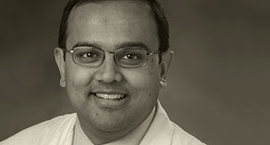
Dr Manesh Patel is cardiology section leader in Interventional Cardiology and is the Director of Cardiac Catheterization Laboratories for the Duke University Health System. Dr Patel previously served as the Director of Duke Cath Lab Research. His clinical interests include diagnostic and interventional coronary angiography, peripheral angiography and percutaneous intervention. He is involved in several clinical trials involving patients with vascular disease and in cardiac imaging. He is also a member of the American College of Cardiology Task Force for Appropriate use of Cardiovascular Procedures and is Chair of the American Heart Association Diagnostic and Interventional Cath Committee. Patel’s interest in cardiac imaging, quality of care, and cardiac devices is also evident in his research. His integration of these efforts into his roles at Duke was recognised in 2010 when he received the prestigious Duke Cardiology Fellowship Mentorship Award. In 2011, Dr Patel was named the endowed John Bush Simpson Assistant Professor of Cardiology.
In 2013, Dr Patel took over the role of Director of Interventional Cardiology and the Cardiac Catheterization Laboratories for the Duke University Health System with the goal of integrating patient-centered invasive care across the health system. Dr Patel has published over 150 peer-reviewed articles in high impact journals, several reviews and over 20 editorials. Most recently, his articles in the Journal of the American College of Cardiology, Journal of the American Medical Association, and the New England Journal of Medicine garnered national attention from the scientific and lay press. Patel received his medical degree from Emory University School of Medicine in 1997. He completed his residency at Duke in 2000, followed by fellowships in cardiology and interventional cardiology at Duke University.

Dr Ricardo Petraco is a NIHR Lecturer in Cardiology at Imperial College London, with a research interest in coronary physiology and interventional cardiology. He is also a Cardiology Specialist Registrar and Interventional Fellow at the Imperial College NHS Trust. After graduating in Brazil, he undertook his Cardiology training in leading UK centres, including the Royal Brompton Hospital, St Mary’s hospital and, currently, Hammersmith Hospital. He has been working with the coronary physiology group at Imperial since 2010 on the development of the novel instantaneous wave-Free Ratio (iFR). Dr Petraco’s work with iFR has led to the proposition of the Hybrid iFR-FFR approach and has established iFR’s close relationship with coronary flow reserve (CFR). Throughout his career, he has secured many research grants - CNPq grant for scientific initiation in Brazil (twice, 2000 and 2001); Imperial College Charity grant (2010); British Heart Foundation CRTF grant (2011) and Academy of Medical Sciences lecturer grant (2016) – and has published extensively in the field of coronary physiology. His interests in computer programming has led to the development of a software for automated analysis of coronary haemodynamics signals which is been used by many leading centres in the world. He has also proposed an algorithm for iFR calculation without the need for an ECG signal. His current research interests are on the development of methodologies to assess stenosis severity in situations of haemodynamic instability and on the understanding of how medical therapies modulate coronary resistance and flow.
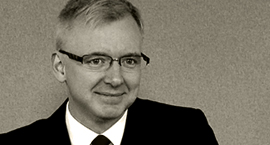
Dr Andrew Sharp is a Consultant Interventional Cardiologist at the Royal Devon and Exeter Hospital and Honorary Senior Lecturer at the University of Exeter in South West England. He trained in Edinburgh, London and Milan, and was awarded a research MD for his work on the hypertensive heart whilst at Imperial College. He is current departmental lead in Exeter for cardiac cath labs, hypertension and cardiac research
He currently leads research studies in the areas of coronary physiology, pharmacological management of hypertension, renal denervation, intra-coronary imaging, complex PCI, aortic valve disease and pulmonary embolus.
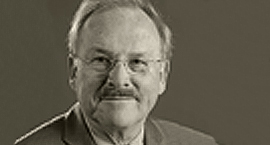 Prof Patrick W. Serruys with respected h-index – 157 is a professor of Interventional Cardiology at the Interuniversity Cardiological Institute of the Netherlands (1988-1998) and Erasmus MC. Since 1980 he was a Director of the Clinical Research Program of the Catheterization Laboratory, Thorax Center at Erasmus University, and till April 1, 2014 (retirement date) the Head of the Interventional Department, Thorax Center, Erasmus MC (University Medical Center Rotterdam), Rotterdam, The Netherlands. Since April 2013, he holds the position of Professor of Cardiology in the Cardiovascular Science Division of the National Heart and Lung Institute (NHLI) at the Faculty of Medicine, within the Imperial College of Science, Technology and Medicine, London.
Prof Patrick W. Serruys with respected h-index – 157 is a professor of Interventional Cardiology at the Interuniversity Cardiological Institute of the Netherlands (1988-1998) and Erasmus MC. Since 1980 he was a Director of the Clinical Research Program of the Catheterization Laboratory, Thorax Center at Erasmus University, and till April 1, 2014 (retirement date) the Head of the Interventional Department, Thorax Center, Erasmus MC (University Medical Center Rotterdam), Rotterdam, The Netherlands. Since April 2013, he holds the position of Professor of Cardiology in the Cardiovascular Science Division of the National Heart and Lung Institute (NHLI) at the Faculty of Medicine, within the Imperial College of Science, Technology and Medicine, London.
He is a Fellow of the American College of Cardiology and a Fellow of the European Society of Cardiology and scientific council of the International College of Angiology.
In 1996, he received the TCT Career Achievement Award and in 1997 he was awarded the Wenkebach Prize of the Dutch Heart Foundation. In 2000, he was awarded the Gruentzig Award of the European Society of Cardiology. In 2001, he held the Paul Dudley White Lecture at the American Heart Association in the USA. In 2004, he received the Andreas Gruentzig Award of the Swiss Society of Cardiology. In 2005, he held the 4th International Lecture at the AHA and Mikamo Lecture at the Japanese heart Association. In 2006, he received the highest award of the Clinical Council of the American Heart Association: the James Herrick Award. In 2007, he received the Arrigo Recordati International Prize (Italy) and the ICI Achievement Award (bestowed by the President of Israel – Shimon Perez). In 2008, he received the Einthoven Penning (Leiden). In 2009, he became Doctor Honoris Causa from the University of Athens. In 2011, he received the Lifetime Achievement Award, bestowed by the American College of Cardiology, in recognition of many years of service and invaluable contributions to the ACC. At the end of 2011, Prof Serruys received the Ray C. Fish Award, bestowed by the Texas Heart Institute, for outstanding achievement and contribution to cardiovascular medicine. In 2012, he received a Golden Medal of the European Society of Cardiology. In 2013, he became Doctor Honoris Causa from the Complutense University of Madrid. In 2016, he will become Doctor Honoris Causa of the Melbourne University, Australia.
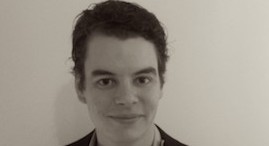
Dr Guus A. de Waard is a Dutch research fellow in the Interventional Cardiology Department of the VU University Medical Centre, Amsterdam, Netherlands. After his medical training at the VU University, he started a PhD program under the supervision of Professor Niels van Royen, focusing on the physiology of coronary haemodynamics in both the setting of stable coronary artery disease as well as after the occurrence of an acute myocardial infarction. The group uses simultaneously acquired coronary Doppler flow velocity and pressure measurements in combination with state of the art cardiac imaging techniques to gain more insight in the pathophysiology of coronary haemodynamics in both settings. In close collaboration with expert groups from the Imperial College London and Hospital Clinico San Carlos, Madrid, his research has been published in the European Heart Journal, Circulation: Cardiovascular Interventions, Nature Reviews Cardiology and most recently in JACC: Cardiovascular Interventions for which he received the 2015 Young Author Achievement Award.
He is currently employed as a research fellow in the group of Dr. Justin Davies at Imperial College London.

This essential guide is an educational activity intended for an international audience, specifically interventional cardiologists and cardiologists. However, other healthcare professionals involved in the care of coronary artery disease (CAD) patients will also find this topical.
This 2 day course general admission pass which covers registration, meals, and refreshments. After course free access to online course resources including powerpoint images, course videos, and links to other Simple Education resources.
Advances in Coronary Physiology course provides all you need to know to understand the basics of coronary physiology and what you need to do to implement coronary physiology into the cardiac catheter laboratory.
Understanding the background of coronary physiology
Understanding of coronary blood flow regulation in unobstructed and obstructed coronary arteries
Learn what you need to know to implement iFR and FFR in your laboratory
Learn about the guidelines for appropriate use and reimbursement